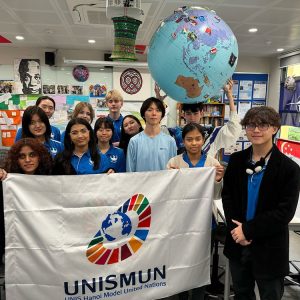Starting kindergarten marks an exciting milestone for children and parents alike! Parents set various goals to ensure their child’s overall development, helping them pave the way for a successful academic journey. These “Parent Goals for Kindergarten Students” often focus on academic, social, and emotional goals, physical development, cognitive alongside problem-solving skills, and communication and language development.
- 4 Parent Goals & Opjectives for Kindergarten Students re Academic
- 5 Parents' Goals & Objectives for Kindergarten Students about Social and Emotional Goals
- 3 Parents' Goals & Objectives for Kindergarten Students about Physical Development
- 4 Parents' Goals & Objectives for Kindergarten Students about Cognitive and Problem-Solving
- 4 Parents' Goals & Objectives for Kindergarten Students about Communication and Language Development
- Shaping the Course for Kindergarten Success: Meeting Parent Goals Together
4 Parent Goals & Opjectives for Kindergarten Students re Academic
The transition into kindergarten signifies a significant step in a child’s educational journey. In preparation for this exciting stage, it’s crucial for parents to establish specific goals to guide their children’s development via:
- Literacy Development: forming the basis for reading, writing, and social interaction.
- Numeracy/Math Skills: by the end of kindergarten, your child should count to 100 by ones (1,2,3…) and tens (10,20,30…), use objects for basic math, and identify shapes such as circles, triangles, rectangles, and squares.
- Basic Problem-Solving and Analytical Thinking: fostering curiosity, encouraging decision-making in play, and promoting creative solutions to simple challenges.
- Art and Creativity: encouraging expressive art, imagination development, diverse art exploration, and fine motor skills.
Here, parent goals for kindergarten students revolve around fostering a sturdy academic foundation.
Literacy Development
Literacy skills are pivotal goals for a kindergarten student because it nurtures a love for reading, promote comprehension skills, and enhance their child’s ability to identify letters and basic words. This skill unlocks the magical world of stories, feeding their imagination and enriching their knowledge.
Numeracy Skills
In the realm of numbers, the children will grasp basic numeracy skills, such as understanding number concepts, recognising patterns, and developing a basic understanding of mathematical operations.
Basic Problem-Solving and Analytical Thinking
While still in the academic domain, parents also focus on cultivating early problem-solving and critical-thinking skills. This encourages children to think logically and approach challenges with an analytical mind. It also instils confidence and sparks their curiosity to navigate challenges, transforming them into mini detectives in the enchanting world of knowledge.

Art and Creativity
Art and creativity through drawing, painting, or creating can boost children to express their thoughts and feelings, colour their imagination, and enhance fine motor skills. Encouraging artistic expression helps students breathe life into their thoughts and feelings, making their world more colourful and tangible.
5 Parents’ Goals & Objectives for Kindergarten Students about Social and Emotional Goals
Next, we journey towards the universe of social and emotional goals, where children learn to connect with others and understand their feelings with:
- Social Skills Development: encourage making friends, sharing, cooperating, and learning to resolve conflicts.
- Self-Management and Emotional Establishment: children begin to comprehend their feelings and emotions, display empathy and handle disappointments with resilience.
- Independence and Responsibility Upholding: help children manage their tasks, make decisions, and understand the consequences of their actions.
- Collaboration and Teamwork: help children learn to work effectively with peers.
- Self-Expression and Creativity: promote children to share their thoughts, dreams, and ideas, embracing their unique personalities.
Parents’ goals for kindergarten students are centred around nurturing their interpersonal skills and emotional intelligence.
Social Skills Development
Making friends, sharing, cooperating, and learning to resolve conflicts form the core of developing early childhood social skills. These essential social skills lay a solid foundation for their lifelong interpersonal journey.
Self-Management and Emotional Establishment
With self-regulation and emotional development, children begin to comprehend their feelings and emotions, they will be able to display empathy and handle disappointments with resilience. In other words, they learn to express emotions appropriately and adapt to various emotional scenarios, parents yearn to see their child blossom into a responsible individual who can make choices independently, creating a positive ripple in their growth pond.

Independence and Responsibility Upholding
Independence and responsibility involve guiding children to manage their tasks, make decisions, and understand the consequences of their actions. Simple duties, like tidying up toys or dressing up, teach them self-reliance. By understanding that actions have outcomes, they learn accountability, building self-confidence, resilience, and a strong character foundation.
Collaboration and Teamwork
Through fostering collaboration and teamwork skills, children learn to work effectively with peers, fostering a sense of community and cooperative learning. Encouraging collaboration and teamwork helps children understand the symphony of collective success; via this, children learn that together everyone achieves more. Parents aim for their kids to value teamwork, sowing the seeds for a community-oriented outlook.
Self-Expression and Creativity
When it comes to self-expression and creativity, children are encouraged to proudly showcase their inner selves. They share their thoughts, dreams, and ideas, embracing their unique personalities. This helps them to express their thoughts more confidently and creatively.
3 Parents’ Goals & Objectives for Kindergarten Students about Physical Development
Next is the domain of physical development, promoting an active lifestyle and a positive attitude towards health.
- Health and Well-being: place good habits in children.
- Body Awareness and Movement
- Outdoor and Physical Activities: develop their motor skills and embrace physical fitness.
Here, the aim is to promote an active lifestyle and a positive attitude towards health, let’s take a closer approach with these pocket strategies.
Health and Well-being
Acknowledging that a sound body leads to a sound mind, parents make it a mission to place good habits in children. Simple routines like practising good hygiene and eating balanced meals, directly contribute to their child’s overall well-being. These habits ensure that their kids are always fit, energetic, and ready for adventure!
Body Awareness and Movement
Through various fun-filled activities, children learn to coordinate their body movements and become more aware of their physical capabilities. Parents aim for their kids to dance with joy, expressing themselves through movement.
Outdoor and Physical Activities
Outdoor play is the arena where kids can run, jump, slide, and swing. Parents see this as an opportunity for their children to develop their motor skills and embrace physical fitness, nurturing a lifelong love for sports and outdoor activities.

4 Parents’ Goals & Objectives for Kindergarten Students about Cognitive and Problem-Solving
As we move further, let’s delve deeper into the intriguing domain of cognitive development and problem-solving skills, forming the intellectual fabric of our young explorers.
- Critical Thinking Skills: allowing a journey of questioning, analysing, and evaluating in kids.
- Problem-Solving Abilities: equip children with the ability to face challenges head-on.
- Logical Reasoning: allows them to make connections, understand cause and effect, and enhances their cognitive development.
- Creativity and Imagination: helps children view the world in different ways and encourages innovative thinking.
In this entrancing sphere, children bloom into novice problem-solvers and inventors, their minds alight with curiosity and innovative thoughts.
Critical Thinking Skills
Parents strive for their children to sport their “thinking caps”, allowing a journey of questioning, analysing, and evaluating. This cultivates a thirst for knowledge, nurturing an insightful perspective and a creative mindset.
Problem-Solving Abilities
Building problem-solving abilities involves promoting curiosity, resilience, and the ability to seek solutions independently. The goal here is to equip children with the ability to face challenges head-on, transforming hurdles into stepping stones for growth and resilience.
Logical Reasoning
Logical reasoning allows children to make connections, understand cause and effect, and enhances their cognitive development. Parents desire their kindergarteners to harness these skills, facilitating informed decision-making and fostering a profound understanding of their surroundings.
Creativity and Imagination
Lastly, cultivating creativity and imagination helps children view the world in different ways and encourages innovative thinking, children are encouraged to dream, design, and discover. The aim here is to nourish creative thinking and celebrate each child’s unique mindset, providing the canvas for their imagination to paint vibrant pictures.
4 Parents’ Goals & Objectives for Kindergarten Students about Communication and Language Development
Our final destination involves communication and language development, this sphere is vital for kindergarteners to express themselves effectively and understand others.
- Speaking and Listening Skills: help children express their ideas, understand instructions, and build effective communication skills for kids.
- Storytelling and Narrative Skills Boosting: enhance children’s ability to continuous events, understand narratives, and develop their language skills.
- Communication in Different Settings: helps children understand the difference between formal and informal communication.
- Nonverbal Communication: helps children understand the language of facial expressions, body language, and gestures.
Now, let’s plunge into the rich waters of communication and language development.
Speaking and Listening Skills
Parents focus on nurturing speaking and listening skills to help children express their ideas, understand instructions, and build effective communication skills. Via this, they learn to express their thoughts clearly and listen to others with empathy.
Storytelling and Narrative Skills Boosting
Storytelling and narrative skills enhance children’s ability to continuous events, understand narratives, and develop their language skills. Such skills develop their linguistic prowess and instil a sense of confidence, empowering them to share their stories with the world.
Communication in Different Settings
Learning to communicate appropriately in different contexts helps children understand the difference between formal and informal communication, thereby amplifying their overall social intelligence.
Nonverbal Communication
Nonverbal communication involves understanding the language of facial expressions, body language, and gestures. Parents aim for their kids to master this silent language, adding another layer to their communication skills.
Shaping the Course for Kindergarten Success: Meeting Parent Goals Together
In conclusion, setting “Parents Goals for Kindergarten Students” is a dynamic and vital process that focuses on the holistic development of a child. At UNIS Hanoi, we embrace these goals wholeheartedly in our celebrated IB Programme, cultivating a vibrant learning atmosphere that sparks curiosity and fosters a lifelong passion for knowledge. As we stride together on this remarkable path, let’s make these exciting kindergarten years count – nurturing, guiding, and preparing our young learners for an inspired future! Apply now to grow and learn together in our UNIS Hanoi family.
Reference source:
- UNIS Hanoi. (2019). Discovery Kindergarten 1 Grade Level Guide (2019-2020). Retrieved from https://www.unishanoi.org/uploaded/Teaching_and_Learning/Elementary_School/ES_HB_and_GLGs_2019-2020/1920_Disc-K1_Grade_Level_Guide.pdf
Author Profile

- UNIS Hanoi is ever-evolving, but one thing that remains is our passion to nurture and equip students to be agents of change for a better world.
Latest entries
 Calendar, News and Publications21 Mar 2025What Is Experiential Learning & Why Does It Matter in Education?
Calendar, News and Publications21 Mar 2025What Is Experiential Learning & Why Does It Matter in Education? Calendar, News and Publications18 Mar 2025Top 10 Sensory Activities for Children for Learning and Growth
Calendar, News and Publications18 Mar 2025Top 10 Sensory Activities for Children for Learning and Growth Calendar, News and Publications12 Mar 20257 Practices to Enhance Student Self-Assessment
Calendar, News and Publications12 Mar 20257 Practices to Enhance Student Self-Assessment Calendar, News and Publications7 Mar 2025Importance of Growth Mindset for Children
Calendar, News and Publications7 Mar 2025Importance of Growth Mindset for Children
Pingback: A World of Discovery: A Day in the Life of a Kindergarten Student